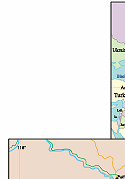 |
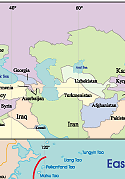 |
 |
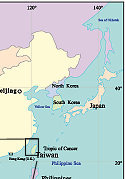 |
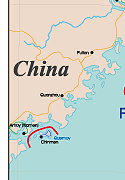 |
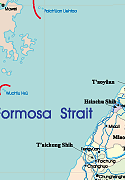 |
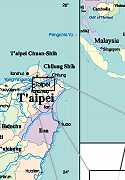 |
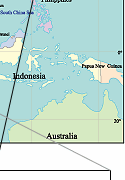 |
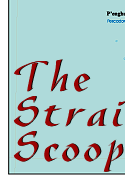 |
 |
 |
 |
|
October 15, 1999 All Politicians are Essentially Actors: Al Pacino, Ronald Reagan and Lee Teng-huiAL PACINO PLAYS NEW YORK CITY MAYOR JOHN PAPPASFilm critic Leslie Rigoulot, in a review of the occasionally brilliant but ultimately disappointing 1996 political drama "City Hall," writes: "[Al] Pacino is the mayor of New York trying to deal with a cop and drug dealer who not only shoot it out on the streets, but also involve an innocent child. John Cusack is his deputy mayor and he manages to portray a man who understands the gritty reality of 'politics as usual' while still honestly believing that he and the mayor can make a difference. It isn't an easy position to take when 99.9% of the American population is distrustful of politicians, but he is so earnest that we believe. But I'm too much of a cynic to believe completely. When Pacino's mayor cries indignation over the deaths in the city, I felt that all politicians are essentially actors. And that may be the point." All politicians are essentially actors. But let's be clear on exactly what that means. Anyone who has ever studied acting knows that to convincingly communicate an emotion to any but the most unsophisticated audiences, an actor must first get in touch with the emotion within himself. An actor who understands his craft knows he must build his performance on a solid foundation of emotional reality drawn from deep within his "instrument." If you've ever wondered just exactly what it is that separates a "real" performance by an experienced actress with genuine talent, and a "false" or "hammy" performance by the Bimbo of the Month on Baywatch, that is it. As film critic Roger Ebert of the Chicago Sun-Times, writes: "New York Mayor John Pappas... moves smoothly into action, accompanied by his idealistic young deputy mayor, Kevin Calhoun. He visits the cop's widow . He visits the boy's father. He holds a press conference ('Be sure the Post gets the first question'). He promises an investigation. And he delivers – up to a point. [Beyond that point however] one hand washes the other, even in the administration of a relatively ethical mayor like Pappas, who is considered a presidential possibility. One scene... involves the mayor's decision to speak at the funeral of the slain child, in a Harlem church. His advisers tell him he won't be welcome there. But he goes anyway, and cranks himself up for an oration of unashamed rhetoric." |
|
Bevin
Chu is an American architect of Chinese descent registered to practice
in Texas. Currently living and working in Taiwan, Chu is the son
of a retired high-ranking diplomat with the ROC (Taiwan) government.
His column, "The Strait Scoop," now appears Fridays at
Antiwar.com. Archived Columns All
Politicians are Essentially Actors: Al Pacino, Ronald Reagan and
Lee Teng-hui Playing
Politics with Taiwan's Quake Victims
Taiwan's Great Earthquake and the Mandate of Heaven Taiwan's
Little Emperors Globocops
With Guillotines Taiwan
Independence and the Stockholm Syndrome Taiwan Independence and Free Lunches (8/31/99) |
|
As Pappas enters the church the congregation is seething with hostility. Physical violence is a distinct possibility. Pappas knows the risk he is running simply by showing up. One photo op gone awry could sink his bid for the White House. But Pappas is accustomed to playing for high stakes and supremely confident of his skill at damage control. Pappas performs his magic act before our very eyes. He defuses the crowd's anger by frankly acknowledging the legitimacy of their grievances and his own administration's culpability. By siding with the community against his own administration, Pappas deftly turns the crowd around. Before they or we realize what has happened, he has transformed himself from the target of their anger into a conduit for its expression and catharsis. Invoking the ghosts of famous mayors, from Pericles of Athens to Fiorello LaGuardia, the Greek-American Pappas thunders, "I will not go down that way [defeatism and despair]. I choose to fight back. I choose to live and not die. I know that what's in me is in you. I ask you to join me, join me, rise up with me, rise up on the wings of this fallen angel [laying his hands on the child's coffin.] I am with you, little James. I am you." "It gets a good response from the congregation" Ebert writes, "but the mayor knows, and his deputy knows, that it was phony, and the way they carefully avoid discussing it, in the limousine taking them away, is a delicate use of silence and evasion." The usually articulate Ebert fails to do justice to the talents of screenwriters Ken Lipper, Nicholas Pileggi, Paul Schrader, and Bo Goldman and leading man Al Pacino. Pappa's spin control is masterly. By the time he is finished, the congregation is eating out of his hand. As Pappas strides back down the aisle they strain to touch him, as if he were Christ come down from the cross. All in a day's work for a master manipulator of populist sentiment. In "City Hall" John Pappas, the fictional Mayor of "Noo Yawk Ciddy," set out on his political odyssey motivated by genuine idealism, but somewhere along the way lost sight of his original destination. To get things done, he had to get elected. To stay elected he did what it took to stay elected. Once the means to a higher end, the power of the office became an end in itself. ACTOR RONALD REAGAN PLAYS RONALD REAGAN, PRESIDENT OF THE UNITED STATESNotwithstanding his all too human failings, Ronald Reagan, the only professional actor ever to occupy the White House, was one of America's better modern leaders. Unfairly dismissed as "merely a B-actor," the Gipper was a talented actor in the best sense of the word. Reagan was a political leader who could act, meaning not only could he "perform in front of the public," but also that he could "take action" when the need arose. Reagan's detractors liked to snicker that when ol' Ron nudged Jimmy Carter out of the White House, he landed the role of a lifetime in an otherwise undistinguished acting career. The joke would be on them. Reagan's detractors would soon be scratching their heads straining to to explain Reagan's "teflon" presidency, to which scandal simply refused to stick. In fact Reagan's Teflon was no mystery at all. Reagan's Teflon was his sincerity, which was not, and could not be faked, not on nightly television, not to American audiences. The American public, as critics of Reagan's most widely viewed public performances, gave him two thumbs up. "Let Reagan be Reagan," his "handlers" exclaimed, and we agreed. We forgave the Great Communicator a multitude of sins, including Iran Contra, which would have rung the curtains down on any other administration. PRESIDENT LEE TENG-HUI OF THE ROC DOES HIS IMPRESSION OF JIMMY SWAGGERTThis brings us to ROC President Lee Teng-hui. Lee, like the fictional John Pappas was once the mayor of a large metropolis, Taipei. Lee, like Pappas, finds his administration threatened by political fallout from the tragic death of an innocent child. It is at this point however that the similarities end. To paraphrase the now famous putdown from Dan Quayle's Vice-presidential campaign, "Mr. Lee, you're no Al Pacino." On Monday, October 11, during a memorial service organized by the Ministry of the Interior, seven thousand people gathered inside Linkou National Sports College Stadium in suburban Taipei to mourn the victims of Taiwan's 921 Great Earthquake. After laying a wreath of carnations before a 12-meter-tall monument situated on a stage bathed in pale blue light, Lee Teng-hui bowed three times. "My heart is filled with profound sadness" Lee intoned, "[but] as long as there is life, there is hope. I hope that during our suffering we don't lose confidence, and that when we face obstacles we become more courageous... I hope the prayers and introspection can help the victims rest in peace and that those who lost their loved ones can transform their sadness to strength and love for their homeland... I encourage all fellow citizens to work together and join hands to build an even brighter tomorrow for future generations." Lee sat down, covered his eyes with his hands, pulled out his hanky, and blotted away tears. Vice-president Lien Chan, who spoke after him, did likewise. "Have you ever heard such a crock of s**t from someone who isn't even the President?" – Chevy Chase, in an uncredited cameo as a cynical New York media mogul in the 1992 political comedy "Hero." LEE TENG-HUI AND LIEN CHAN'S AMATEUR HOUR PRODUCTION: TWO THUMBS DOWNI am not speaking metaphorically when I assure you I couldn't believe what I was seeing. Now it is a cliche in Taiwan that "ren min shi jen wang di" or "the public has amnesia," and that sleazy politicians guilty of wrongdoing need only lay low for the storm to blow over before resuming business as usual. But did Lee really imagine the public had forgotten that just seventeen days ago Lee's personal helicopter demolished a cluster of quake victims' tents? That Mr. Democracy, rather than apologize, chose to get into a shouting match with an old woman made homeless for the second time in three days, this time by her "public servant?" Did Lee really imagine the public had forgotten that just fifteen days ago, having learned nothing from his first mistake, Lee's four helicopter entourage ripped a heavy limb from a tree and bashed in the skull of a five year old homeless quake victim? That Mr. Democracy, rather than apologize, simply bugged out, leaving his flakcatcher behind to mollify the dead girl's grief-stricken mother and father with a piddling US$10,000 compensation? Forget Al Pacino's "City Hall." Forget Ronald Reagan's "City on a Hill." I've seen more believable tears from Jimmy Swaggert. Acting standards on Taiwan are abysmally low, and local audiences are lamentably undemanding, as any American expatriate who has ever lived in Taiwan and watched a local soap opera can testify. The megalomaniacal Lee Teng-hui may just be sufficiently out of touch with reality to believe that his patently phony performance – an insult to the intelligence of millions of ROC television viewers – actually merited a John Pappas Lifetime Achievement Award for Best Spin Control. But the John Pappas' of the world have only been able to work their magic because once upon a time they actually believed in something, and could draw on the fading memories of their forsaken ideals. But what does this have to do with Lee Teng-hui? Apart from believing that he was or is Japanese, what exactly has the opportunistic chameleon Lee Teng-hui ever really believed in? The ROC presidential election is scheduled for March, 2000. Mr. Democracy's "da shou" or "flunkies" have been floating trial balloons attempting to gauge public reaction to a one year "postponement" using the earthquake as the flimsiest of pretexts. Lee has already "served" twelve years. Lee Teng-hui wants to be Mr. Democracy. Lee Teng-hui wants to be "President for Life." Lee Teng-hui wants to have his cake and eat it too. Decisions, decisions. Like Fox Mulder in the X-Files, "I want to believe." I want to believe "The president never lies." I want to believe in "Truth, Justice and the American Way." But like film critic Leslie Rigoulot, I'm too much of a cynic to believe completely. When Lee Teng-hui weeps ostentatiously, on cue, over Taiwan's quake victims, I too feel that all politicians are essentially actors. The only difference is that some are a hell of a lot better than others.
Please Support Antiwar.comA contribution of $20 or more gets you a copy of Justin Raimondo's Into the Bosnian Quagmire: The Case Against US Intervention in the Balkans, a 60-page booklet packed with the kind of intellectual ammunition you need to fight the lies being put out by this administration and its allies in Congress. Send contributions to Antiwar.com or
Contribute Via our Secure Server |
